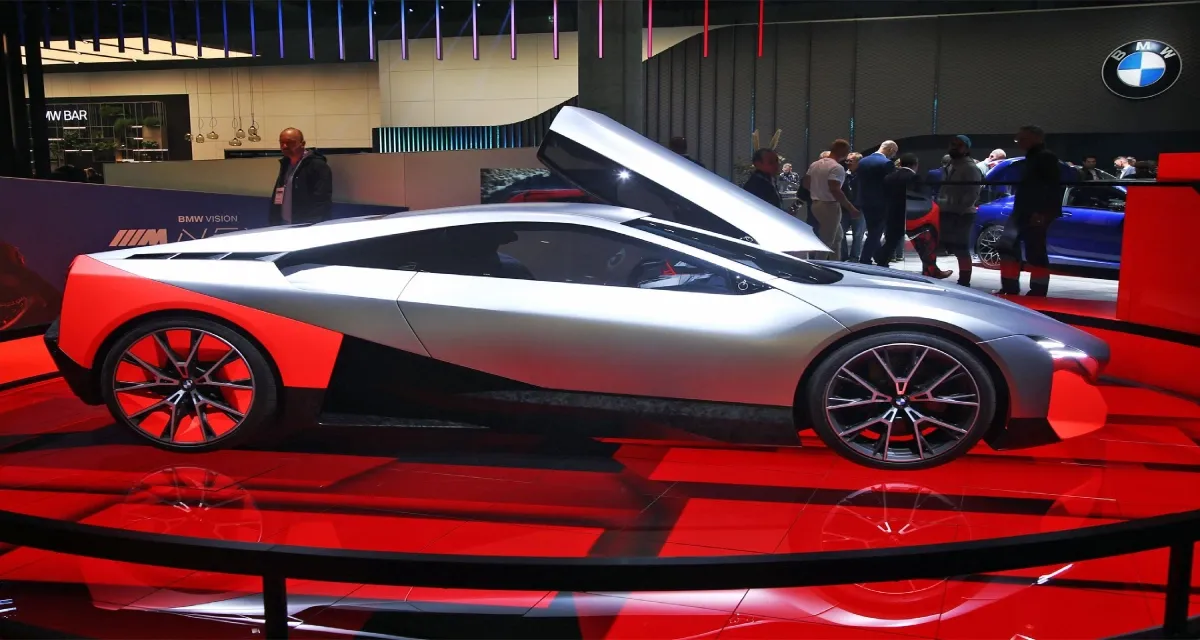BMW had been secretly crafting a revolutionary mid-engined hybrid supercar named the i16, envisioned as the successor to the iconic i8. This clandestine project, recently unveiled by BMW's head designer Domagoj Dukec on social media, had been shrouded in secrecy for a remarkable four years. The i16, conceived as a potential second bespoke model for BMW's M performance division, emerges as a striking and innovative design, drawing inspiration from the revered 1978 M1 supercar and representing a faithful evolution of the Vision M Next concept introduced in 2019.
This extraordinary supercar boasts a road-legal design, incorporating distinct elements inspired by the Giorgetto Giugiaro-designed M1. Notable features include an angular, cab-forward silhouette, vented rear arches, and a louvered engine lid. Interestingly, the i16 was strategically planned to leverage the i8's composite structure, a move aimed at mitigating development costs and enhancing its practicality for potential production. However, it remains uncertain whether the i16 would have employed the same plug-in hybrid powertrain that distinguished the i8.
The i8, a trailblazing plug-in hybrid electric vehicle (PHEV) from BMW, featured a 1.5-litre three-cylinder turbo-petrol engine combined with an electric motor. This power duo delivered a total output of 374hp, propelling the i8 from 0 to 100kph in a mere 4.3 seconds. Launched in 2014, the i8's production concluded in 2020, paving the way for BMW's new line of bespoke electric models, including the iX3 and iX.
Also Read: As EV sales decline, Jaguar Land Rover shifts its focus to PHEVs
The development of the BMW i16 faced an unfortunate halt in 2020 due to the onset of the COVID-19 pandemic, a global crisis that prompted the suspension of various projects, including this futuristic supercar. While the Vision M Next concept had hinted at a potential successor to the i8, the cancellation of the i16 came as a result of concerns related to high research and development costs and potential challenges in market demand.

Despite the setback, the M division's boss, Frank van Meel, hinted that the door was not entirely closed to the idea of a new hybrid supercar. In 2022, he expressed a continued interest, stating, "It's always something we can look at. As car guys, we're always dreaming of making such cars. It doesn’t mean we will make them, but we keep exploring those ideas." This sentiment implies that, despite the cancellation of the i16, BMW remains committed to exploring innovative concepts, keeping the dream of a super-sports car alive within the realm of possibilities.
In summary, the BMW i16, a visionary and road-legal successor to the i8, emerged as a captivating concept that never materialized into production. The challenges posed by the global pandemic and uncertainties surrounding production costs and market demand led to its cancellation. However, the persistent exploration of groundbreaking ideas within BMW suggests that the dream of a super-sports car continues to be nurtured within the company's innovative spirit.
Also Read: BMW Cars Under 1 Crore: Used & Second Cars
